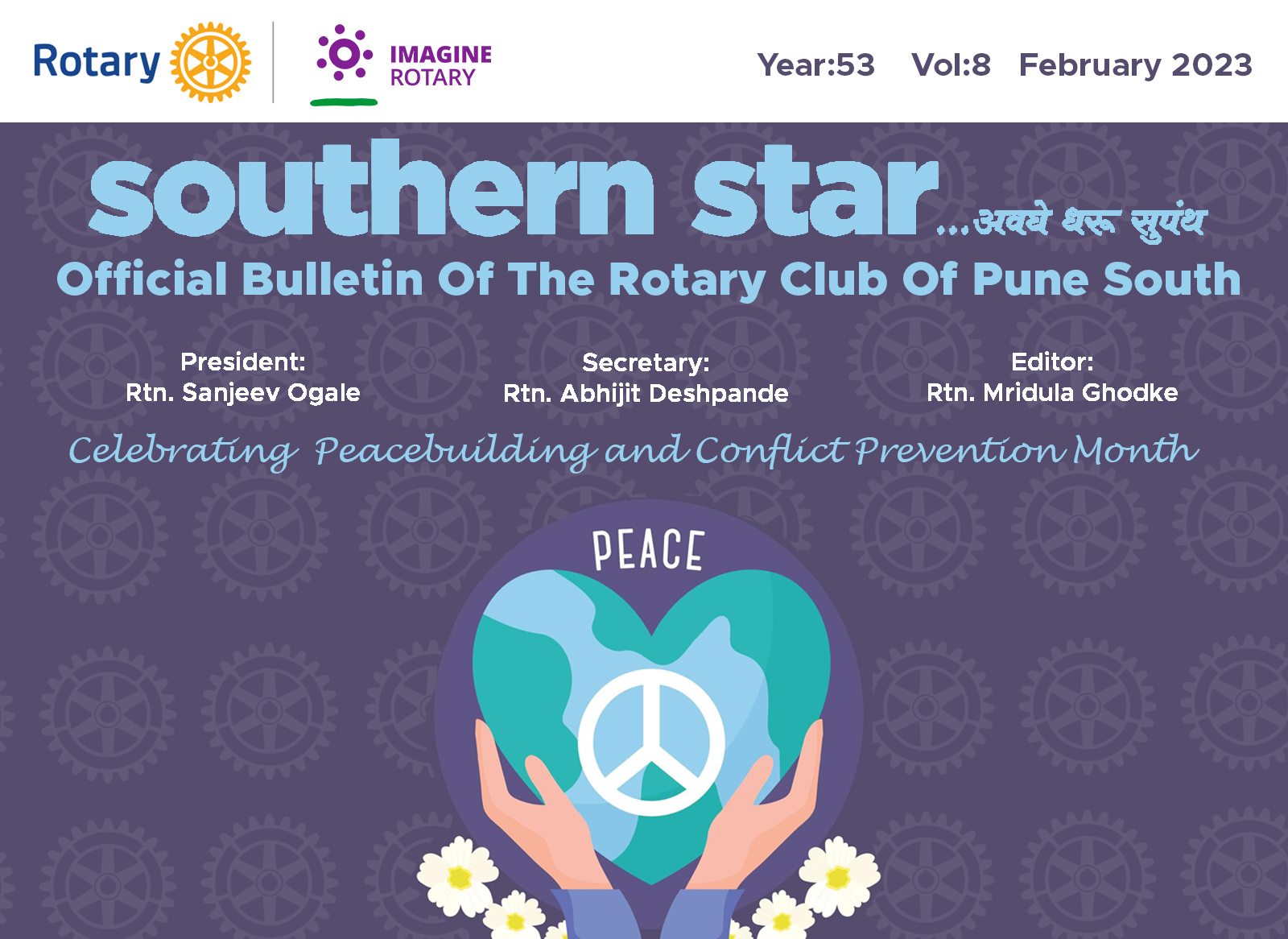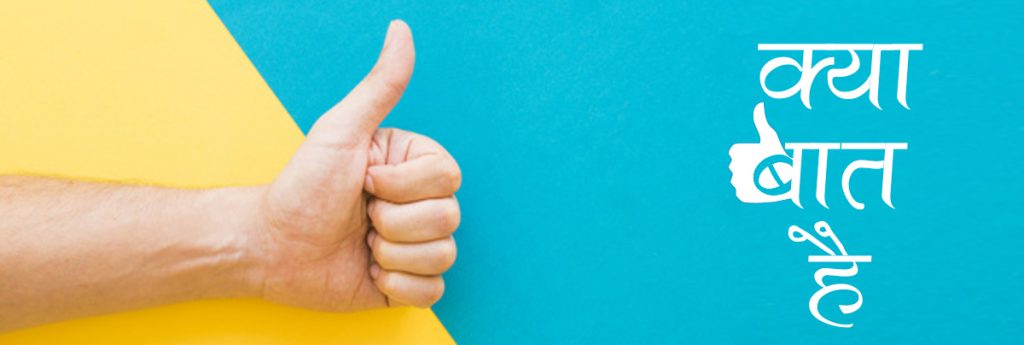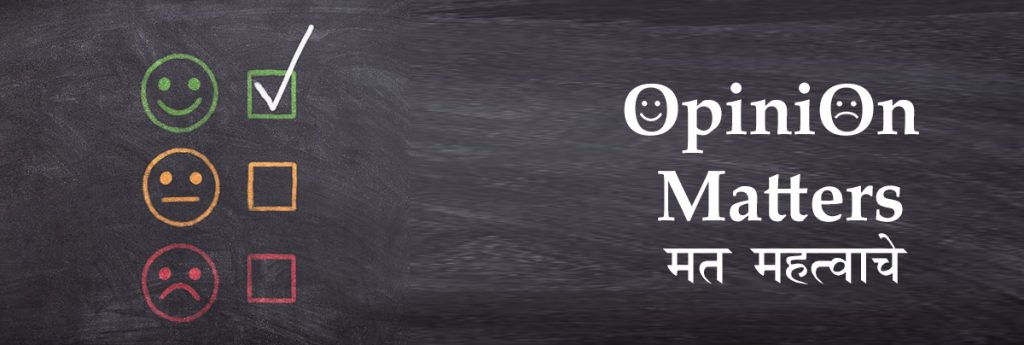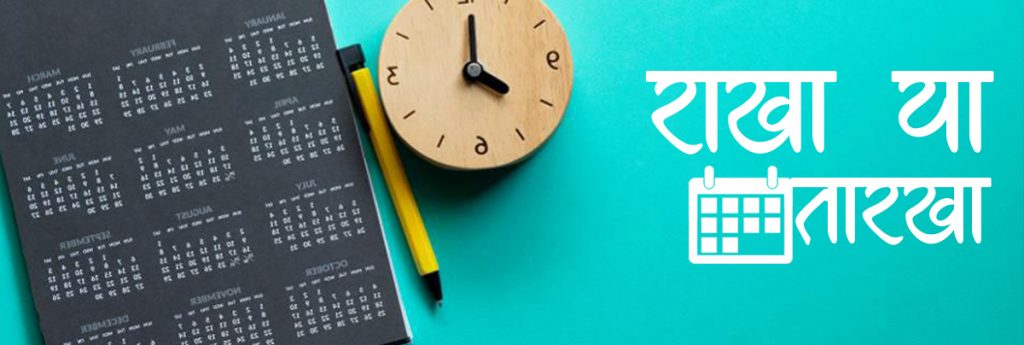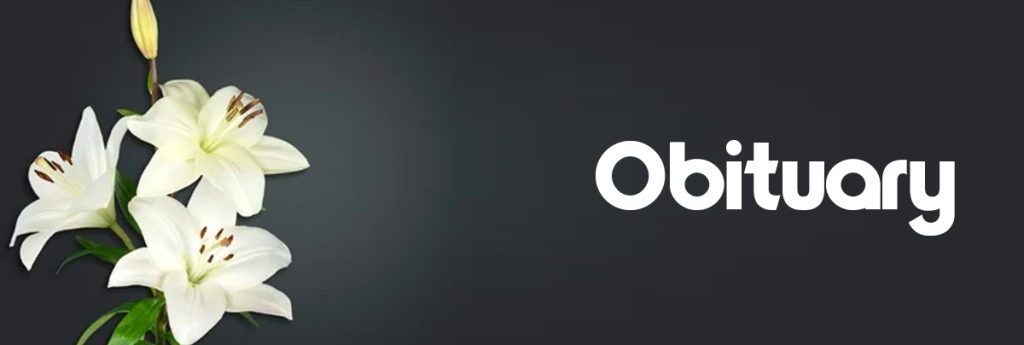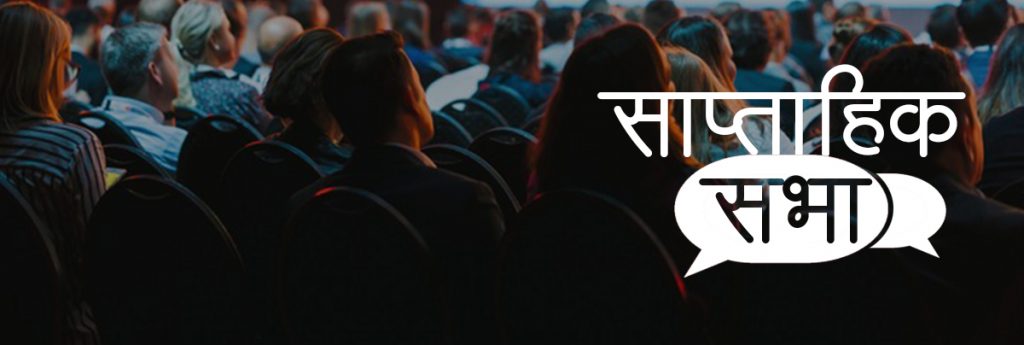
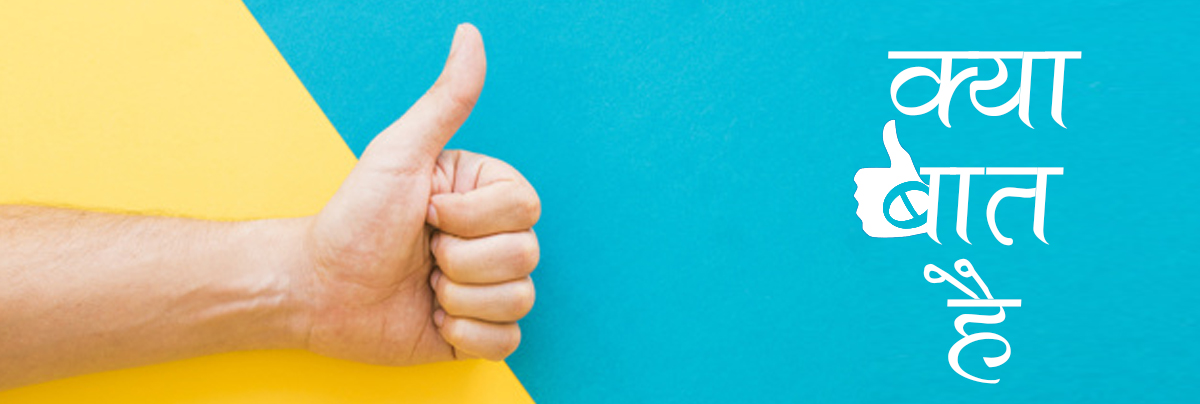
Under project "Mamata" RID 3131 has donated 110 baby warmers to government hospitals in district. We are one of the participants. Donated warmer to Ramabai Ambedkar Hospital, Ambil odha. One good part is all the warmers are given by our PP Rtn. Sudhir Waghamare at a very concessional rate. Sushrut (his son) received the falicitation. Congratulations...
Annet Sushrut Waghmare being felicitated by Dr Ashish Bharati & Dr Ravindra Bilawde, Commissioner PMC for providing 110 warmers to Rotary at a very concessional rates & for timely delivery.
Thank you P.P.Rtn. Sudhir Waghmare for your valuable contribution to Rotary foundation.
This will be used for our ambitious project at Gundalwadi dam.

Hearty congratulations to Rtn Santosh Marathe for being elected as the RI Dist.3131 Governor for the year 2025 -26.
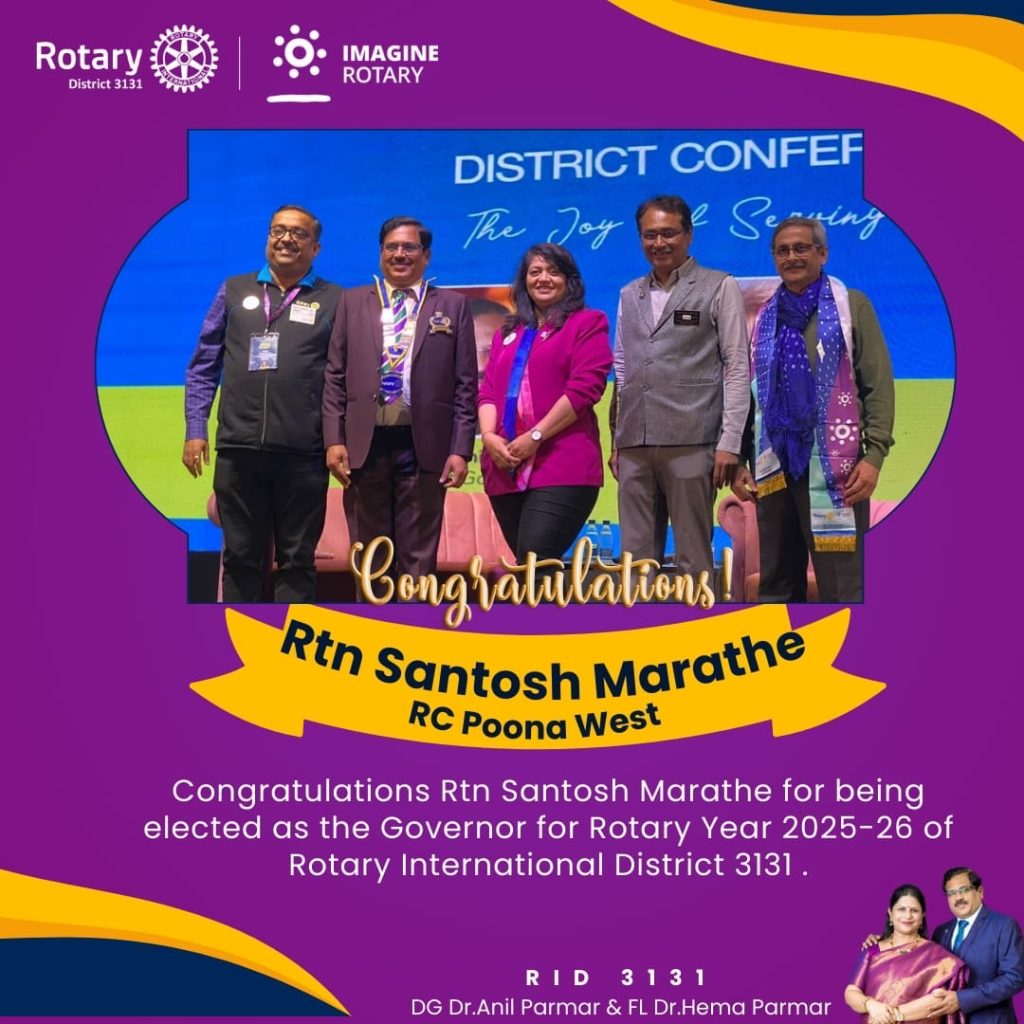
On Saturday President Sanjeev Ogale & first lady Sneha Ogale received the Major Donor Level One Pins with Eitched Crystal Sovenior with their Names Etched On the Crystal Souvenir. Thank you Foundation Director Rtn Vinodbhai.


Greece is supposed to be the origin of European civilization and much has been written about the basic differences between the eastern and western civilizations. Pt.Nehru does not agree with it. For him the comparison seems to be unclear, unscientific and without any base. Till recent times there was a misconception among the Western scholars that every thing worthwhile originated eighter from Greece or Rome. Even British jurist Sir Henry Maine said that nothing moves in this world which is not originally Greek, except forces of nature. These classical Greek and Latin scholars knew very little about India and China. Still, Professor E.R.Dodds who was Irish and a classical scholar and a professor of Greek at Oxford University between 1936-60 pointed out that ' Oriental background against which Greek culture rose, and from which it was never completely isolated save in the minds of classical scholars.'
Serious education in Europe was limited to the knowledge in Greek, Hebrew and Latin medium for a long time. The world was visualized around Mediterranean culture. The idea was similar to the concept of Roman domination in olden times. This idea of Mediterranean world not only influenced the understanding of history ,territorial and international politics, development of European culture and civilization but obstructed the scientific progress. The minds of the scholars were dominated by the philosophies of Plato and Aristotle. Even when some information revealed the contribution of Asia in the Knowledge, it was not accepted easily. The general population also believed in the difference between East and West. Industrialization and development in the European world helped to strengthen this belief. Thus by orthodox reasoning ancient Greece became the father and mother of modern Europe and America. As the new knowledge of the past was acquired ,few of thinkers were surprised, but in the minds of the most of the people, intellectuals or otherwise, centuries old ideas of supremacy which they had created for themselves remained.
Pt.Nehru does not recognize the differentiation made in culture or Civilization, by using the words Orient or Occidentl(western) except about the industrialization of West and backwardness of Asia. Industrialization is comparatively new in the history of the world. It has changed and will continue to change the world. But there is no direct connection through people, between Ancient Greek civilization and modern European and American Civilizations. Modern notion of luxurious life was not mentioned in Greek or any other ancient literature. Greeks, Indians, Chinese and Iranians were always trying to find a religion and a philosophy of life in their activities, that produced peaceful existence and a calm state of mind. This desire, reflects in every aspect of their life, including in literature, art or social customs, which produced proper relationships and sense of fulfillment in life. Probably This impression may not be entirely true and actual situation on the ground might be different. But it is important to know that outlook and approach of modern Europe and America is very much different from Ancient Greek whom they claim to be their kin. This so called Kinship satisfies their guilty conscience caused by the existence in harsh and hot desert like conditions of modern life.
Every country and it's people had individual qualities and attempted to solve their problems their own way. Ancient India and Ancient Greece were different from each other, still they were close to one another, the same way as China and India who were close to each other in thought inspite of the differences.
They all had a broad and tolerant outlook towards idol worshipping, happiness in life and beautiful things, towards nature and love for art and had a wisdom that comes from the years of accumulated experience of the old race. Each one developed according to their racial ability which was influenced by the environment they lived in and had atleast one individual quality, separate from the others. The Greeks relished the present times and enjoyed the beauty around them or the one they themselves had ,created. The Indians enjoyed present times and peaceful coexistence but at the same time sought thorough knowledge of life, questioning the set ideas. The Chinese were aware of these uncertainties of life ,but to avoid any confrontation with them, were neutral to them. So each of these cultures tried to show perfectness and beauty of life in their own way. Historically India and China had stronger religious and philosophical foundations and therefore greater sustaining power. Their cultures therefore have survived, through the difficult times ,though badly battered, and have deteriorated. Therefore their future is uncertain. Ancient Greek civilization did not survive long. But it left its mark, of its extraordinary lifestyle, it's extraordinary achievements, its monuments, on the succeeding cultures, through it's memory. The civilization perished because it was too much involved in the present.
India is far nearer in thought and attitude to the old Greece than the European nations themselves, even though Europeans consider themselves to be the product of Ancient Greek philosophy. We are apt to forget this relationship with Greece, because we have fixed ideas about basic principles of life, which prevents us from thinking out of the way. India is believed to be religious, seeking meaning of life, guessing without knowing the facts, looking for the nature of existence beyond physical reality, not worrying about this world and dreaming about the life beyond this world and afterlife. That is what we are told by others. Perhaps these others want us to get engrossed in those thoughts, so that, we do not notice their ingression in to our world, and take over it and enjoy the fruits of their possession. Yes, India is religious, philosophical, speculative etc. but also much more than this. She has been as innocent and carefree as a child, as emotional and fearless as a young person, full of wisdom and maturity that comes from sufferings as well as pleasures over a long period. Over and over again she has gone through these phases. Tremendous lack of ability to change that comes from the old civilization and size have slowed her down, humiliating customs and immoral practices settled into her, many freeloaders have stuck to her and sucked her resources, but India has survived all of this because of the wisdom and strength of an ancient race. Though our civilization is very old, with the history of hundreds of years, we have revived ourselves time and again, keeping the dreams and memories of the past intact.
There is not any secret formula that has kept us actively going through the long passage of time but kind and loving human beings, mixed and tolerant culture, thorough understanding of life and it's mysteries. This abundant energy is reflected again and again along the long period of time through Indian literature and art ,of which a very small part is available. Most of it is eighter not found or have been destroyed by the nature or man.' Trimurti' of Elephanta caves is one of the most important example of Indian art. It can be a many- faced identity of India herself. Powerful, persuading eyes, full of knowledge and wisdom, look down upon us. 'Trimurti 'is a statue of Lord Shiva, depicting His five faces (panchmukh) and three aspects, I.e. creation, protection, destruction. Ajanta carvings are full of kindness and love of beauty and life with a hint of life's mysteries in it.
Geographically and climatically India and Greece are different. There are no big rivers or forests or big trees in Greece, which are plentiful in India. There is Mediterranean sea which influenced Greeks more than the seas around India, except perhaps the people near coastal region. Indians' living was mainly land based, with vast plains, huge mountains, mighty rivers and big forests. There are some miner mountains in Greece also, like Olympus, which is considered to be the Home of Gods, the same way as Indians, who have placed their Gods and Sages on Himalayan Mountains. Both civilizations have a mythology which is based on the history, so that facts and fiction cannot be separated from each other. The ancient Greeks were neither pleasure seekers nor were they denying pleasure of the world to themselves deliberately. They did not consider pleasures as something morally bad, nor did they went out of the way to enjoy pleasures, as in modern times. They did not have any inhibitions, lived life cheerfully, got fully involved in whatever they did and therefore seemed to be more active than Indians. There seems to be the same kind of life in India, as mentioned in the old literature. Some of the people in India were disinterested in the worldly pleasures and adopted the life accordingly, but most of the people lived normal life. Tendency to deny worldly pleasures grew more under the influence of Jainism and Buddhism, but remained confined to few people.
Both in India and Greece life was lived fully and as it came, in good times and bad times, because the inner self or soul was considered Supreme and not the outer shell of the body. This led to the inquisitiveness and desire to know about inner self, not through the facts of the experience, but through the sensible thought, based on a presumed basic principle. This was true everywhere before arrival of scientific methods. Probably this inquiry was confined to few intelligent people. Still even an ordinary person was interested in this concept and discussed it and it's meaning in public places and gatherings. This practice of discussing the common subjects affecting the people, in temples, market places, mosque, at common wells or municipal (Panchayat)hall, in a assembly house, was prevalent, specially in rural areas. There was plenty of time available for the public to discuss the issues, express once views and form a public opinion .
Ancient Greece (Hellenism) had a unique gift to the world i.e. early beginning of experimental science, which started more in Alexandria of Egypt, than in proper Greece between 330 to 130 BC. Alexandria was a province of Greece in Egypt. The scientific development and inventions took place in medicine and mechanical science by establishing a library and museum in Alexandria. Scientists like Aristarcus, Eratosthenus put forward the theories like, the Earth is round and revolves around the Sun. Earth's circumference was calculated with great accuracy. Euclid devised Geometry. A medical school was established in Alexandria in 3rd century BC, where Herophilus found that the Brain controls the Body. Galen, a famous Roman physician studied in Alexandria. Earliest teachers of medicine in Alexandria, Philatasay Cos(340 BC.) and praxagorus of cos(350BC.)
discovered the importance of the examination of pulse and it's origin in Blood vascular system. Herophilus was a first scholar in functional physiology and anatomy. Erasisratus of Ceos(315-240BC) found that the Body is made up of Nerves,Veins and Arteries. There were many such illustrious scientists in Alexandria. Light house of Alexandria (247 BC.) Was 300ft high and was among the seven wonders of the Ancient world. India at that time was no where near Greece, neither was rest of the world. Even Roman Empire with its power and dominance over the world did not contribute in science, invention or development in mechanics, though it was close to old Greece. After the collapse of classical Europe (8th century BC.to 5th century AD)Arabs carried the spark of the scientific knowledge on, through Middle Ages(A period between 500ce to 1400-1500ce.after the fall of Roman Empire.)
Advent of scientific activity and inventions was due to the need of the time as the society was growing with growing sea trade. Same way advances in arithmetic, algebra, use of zero in calculation, the place value system (system in which position of a digit in a number determines it's value, eg. in India were also due to the increased trade, social needs and intricate business organizations. It is doubtful whether this scientific awareness was present in general population of Old Greece. Ordinary people must have followed traditional life based on old philosophical approach of becoming one with nature and live peacefully with it. The same philosophical approach was prevalent in India. In Greece , like India the year was divided by festivals, which indicated arrival of seasons. This kept the man up to date with change in nature. In India Dasara and Deepawali is celebrated at harvest time and end of summer and beginning of winter ie.in autumn. Holi in summer. Gokulashtami, Shivratri etc.to celebrate epic heroes and Gods, with singing and dancing as in ras-lila, the dance of Lord Krishna with Gopis.
There was probably no separation of men and women in India except in noble families, unlike that of Greeks. The important, scholarly, accredited women mentioned in old books, like Sita, Draupadi, Maitreye, Bhairavi Brahmani, Ubhaya Bharati, Gargi, Mirabai,Lupamudra, I Ghosha, often participated in public debates.Threading ceremony was performed both on boys and girls, which was precursor to entering a school. Marriage in Greece was a contractual affair, but in India it was a religious and sacred ceremony, although other forms of union like Gandharva Vivaha are also mentioned in the old literature. Greek women were popular in India. Mostly maids-in-waiting (Dasi) mentioned in old Indian drama are Greek women. Singing boys and pretty maidens were imported from Greece through the port of Barygaza (Baroach).Greek historian Megasthenes mentions about Maurya King Chandragupta, ' the King's food was prepared by women who also served him with wine which is much used by all Indians.' Some of the wine must have come from Grecian(Ancient Greece)lands or colonies. A Tamil poet of old days refers to the 'cool and fragrant wine brought by 'Yavanas' (Ionians or Greeks) in their good ships'. A Greek account tells that King of Pataliputra (Ashoka's father Bindusara?)wrote to King Antiochus of Greece, asking him to buy and send him sweat wine and dried figs, along with a Philosopher specialized in a subject. Antiochus replied, 'We shall send you the figs and wine, but in Greece laws forbid a Sophist(specialized Philosopher)to be sold'. It is clear from Greek literature that homosexuality was common in Greece and was not frowned upon. In fact it was considered as a form of romance. Probably this was due to the separation of sexes in youth. Same behavior is found in Iran. Persian literature is full of such references. So much so, that, to present a male partner as beloved, had become a fashion, in literature. There is nothing similar in Sanskrit literature and homosexuality was neither approved nor common in India.
Greece and India were in contact with each other from earliest recorded times. In the later period also India was in contact with an ancient Greece dominated Western Asia. The famous astronomical observatory in Ujjayani (Ujjain) was connected to Alexandria in Egypt. During this long contact there must have been cultural and intellectual exchanges between these two ancient civilizations. It is recorded in some Greek books that some Indian scholars met Socrates and put some questions to him. Pythagoras (a Greek philosopher and mathematician-570BC to 495 BC.)was influenced by Indian philosophy. Prof. H G Rawlinson ( a historian specialized in South Asia)remarks that, ' almost all theories, religious, philosophical and mathematical, founded
by the Pythagorians were known in India in the six century BC', I.e. before Pythagoras. European scholar E J Urwick(1867-1945;Message of Plato 1920) has based his interpretation of ' Republic ' of Plato upon Indian philosophical principles. Idea of 'Gnothism ' (knowledge of religion based on personal experience and not by teaching. ) is an attempt to fuse Indian and Greek Platonic ideas. The philosopher Apllonius of Tyana(3 BC-97AD) probably visited India around 64 AD(?). A famous scholar traveler Alberuni(born in Khorasan - Central Asia 973-1050AD)from Persia(Iran) visited India in 11th century AD. He had studied Greek philosophy. He was well-known in Baghdad in early days of Islam. He learned Sanskrit to study Indian Philosophy. He was surprised to notice similarities in Indian and Greek philosophies which he mentions his two books on India. He is considered as a founder of Indology. He was interested in astronomy and mathematics and referred to the books written in Sanskrit on Greek and Roman astronomy.
Though Greek and Indian civilizations were in contact with and influencing, each other,they were strong and independent enough to develop independently with individual characteristics. In modern times there has been a tendency to give credit to Rome, Greece, Asia and specially to India for everything that happened in the past. Professor Tarn of the University of Liverpool said, 'considering generally, Asians acquired superficial matters from Greeks and not the essence of matters, perhaps with the exception of civic institutions .They never acquired their thoughts or philosophy from Greeks because Asians were quite confident that Asian philosophy will outlive Greeks and it did outlive. Indian civilization was strong enough to hold against Greek's, but, except in the matter of religion, was not strong enough to influence Greeks as Babylonia (an ancient state in modern day Iraq.1894BC to 539 BC.) did, where Alexander the great settled Greeks. Other wise in celtain respects India was a dominant partner.
Except for the statue of Buddha, Indian history would have been the same, as if, Greeks never existed.' The image worshipping in India was inherited from Greece. Vedic religion did not approve of idol or image worshipping. There were no temples in Vedic India, though there might be some occasional image worshipping in Older Faith's. Even early Buddhism was against image worshipping and making of Images and Statues of Buddha. But because of the strong Greek artistic influence in Afghanistan and around the border, Apollo like Statues of Bodhisattva (previous incarnations of Buddha.) appeared. This eventually was followed by the Statues of Buddha himself. This led to image worship in some forms of Hinduism, though not in Vedic religion. The word for statue is But or Boot (बुत) in Persian and Hindustani language which is derived from the word Buddha.
The human mind in searching for some kind of uniformity and togetherness of life,with nature and universe to satisfy once feelings. Old philosophers and even the modern scholars are seeking this. All our upbringing ,planning, schemes, social and political organizations have the aim of achieving unity and peaceful coexistence with the nature. But now the modern science,scientists, thinkers, philosophers, tell us that there is no such unity and uniformity in Universe which is formed by an accident and not deliberately. Even then this misbelief has yielded positive results and produced harmony, balance and richness in Life.

Times of India dt Nov 22, 2022 front page news says. The supreme Court frowned at the Army authorities for holding selection boards to promote male officers to Colonel rank while withholding the same for female Lt. Colonels. 34 women say men junior to them made colonels.
Even today discrimination against Women is rampant in all the fields.
In light of this, book titled Women's Power by Vinoba Bhave is a must read.
Paragraph on page 59 from the book is as below.
Penance to achieve knowledge
Women should become eloquent. People insist that women should work silently, but we should remember that it is a form of theft to refrain from speaking when it is necessary to speak. We should use the power which God has given us. I wish that women should become eloquent and roar as loudly as lions. The basis of that roaring should be moral. Inwardly as they should have the strength of spiritual faith, outwardly, the expression through eloquence. Women should not yield, they should be as valiant as a lion. They should work with all their strength. Their power of expression should grow, and their power of contemplation should develop.
Mirabai broke all the bonds of her time and came out of the Purdah. This courage which she displayed is exceptional in the history of India. In that Rajasthan where Purdah is observed even today, there Mira gave up Purdah and danced.
पग घुंगरू बांध मिरा नाचे रे !
Tieing bells on her feet. Mira dances

The financial year 2022-23 is nearing to an end with onset of presentation of Union Budget by Finance Minister of Government of India on 1st February in the Parliament.
Reduction / Exemption in G.S.T. on certain goods and services
Reduction in Customs Duty on import of specific goods
Reduction in Tax on income of corporate sector
Enhancement in basic Tax free exemption limit of Income Tax
Increase in limit under Sec. 80 c of Income Tax Act for investment in L.I.C., P.P.F. etc.
Additional provision for subsidies and grants for certain sectors like health, agriculture etc.
Naturally, looking in to the previous years experience and planning of various welfare schemes, Government would propose the funds allocation and shortfall if any will be proposed to be compensated by increase in taxes and other revenue generation sources. Naturally, in spite of all balanced efforts, all sectors of the economy and all the opposition political parties cannot be satisfied and will have their negative comments on the same, while the at the same time the ruling party would justify the same as a pro development budget. Before the budget and the finance bill is approved by the parliament, the valid and practical suggestion will be honored by the Government and will be incorporated and the bill is passed as a financial road map for coming financial year 2023-24.
The financial budget has a lot of impact from various parameters like FOREX Reserves, Exchange Rate of Indian Rupee, Balance of Trade Position of India, quantum of collection of GST , Income Tax and collection of other revenues, Gross Domestic Production, Overall employment in the country, Interest Rates, future plans for development of infrastructure ( water, electricity, roads, ports, communication), education, health care, increase in agricultural production, growth in industrial sector, Natural calamities like pandemic, storms, earthquake etc. Even, looking to external threats, the defense provisions play an important role in budget allocation.
Though the Union Budget is an important roadmap for economic development, more or less it is a routine. However it would be of interest to see what are the parameters (both positive and negative) which need to be considered. To name a few:
Positive Aspects:
Acceptance of Indian Rupee for settlement of international trade transactions. Nearly 35 countries have started dealings in INR.
Various countries including USA & Europe have shown interest in adopting UPI (Unified Payment Interface) system of India.
Foreign exchange reserves of India reached all time high to the level of 2,71,150 million US$ in 2022.
Increase in GST Collection with growth of about 15 % in F.Y. 2022-23.
Increase in Industrial production is about 8% in F.Y. 2022-23.
Innovation & technological improvements – including Make in India, Start up units, Vande Bharat and Bullet train High speed Railway project, large increase in national highways network, opening of additional AIMS, Increase in Indian cities air connectivity etc.
Introduction of 5G Network.
Global diplomacy with chairmanship in UN Security Council / membership of QUAD/chairmanship of G20 group of nations.
Fast Recovery of Economy post CORONA & Vaccine Diplomacy.
Negative aspects /Matters of concern:
Price rise – Average increase in consumer price increase by 6% - Need immediate action by Government & R.B.I. to curb inflation.
Employment generation not up to mark, as per the promise of Government and additional efforts are required in this respect.
Rise in Petroleum product prices – on which Government is expected to take firm steps to stabilize the same, especially when the prices of petroleum products are falling in international market.
Fall in GDP growth rate estimate to 7% in 2022-23 as compared to 8.7% in 2021-22. However it is commendable of in spite of corona pandemic, as compared to other developed countries.
Considering the all the above aspect without prejudice in an unbiased manner, it can be well inferred that if Government attends to negative aspects in time, Indian Economy will have a stability and a steady growth, by making India’s international position more strong in coming years.
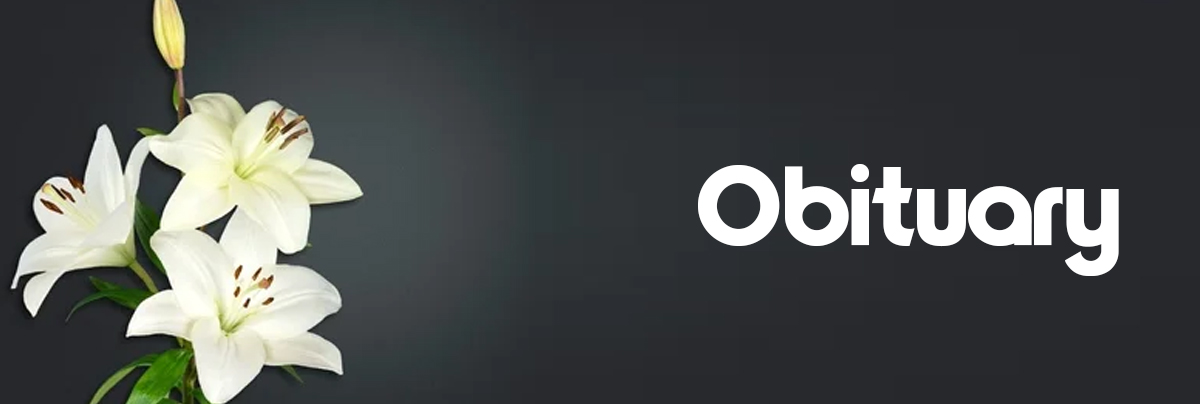
Dear Rotarians & Ann’s
Our Beloved Ann Vandana beloved spouse of our PDG Pramod Jejurikar Passed away unfortunately at Sahyadri hospital on 15th January 2023.
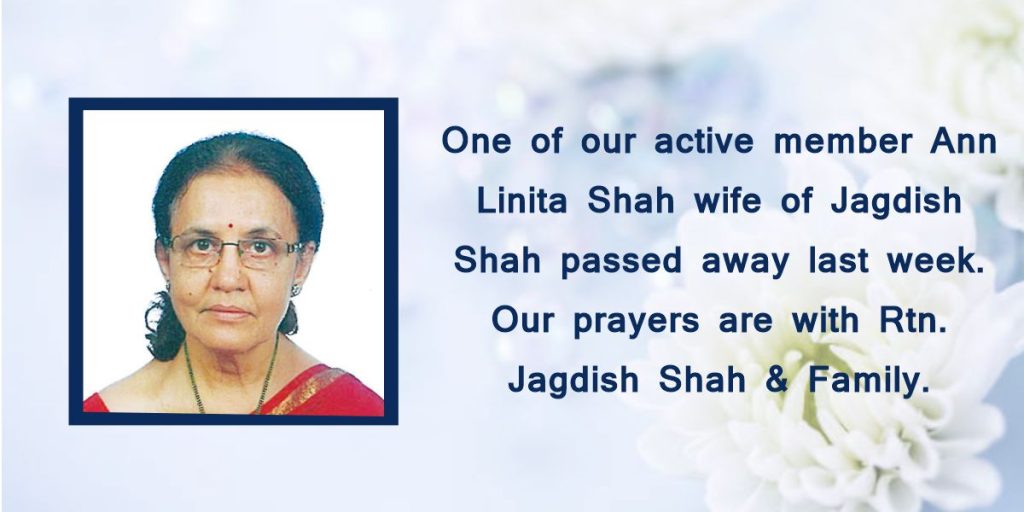
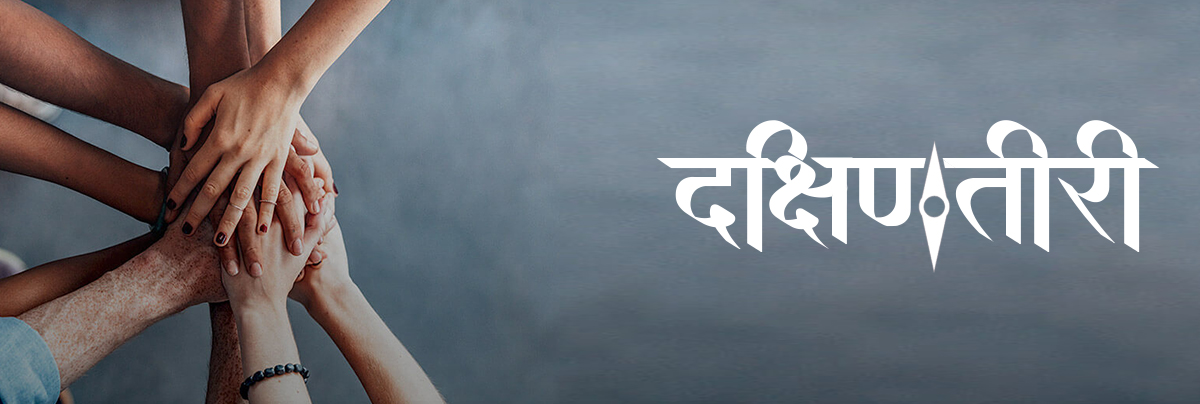
6 January 2023
New year's remarkable beginnings!
Medical project at Lok Biradari Prakalpa, Hemalkasa:
Happy to inform you all that our club did a mega project of donating life saving medical devices like Neonatal & Paediatric Ventilator, Open care Incubators (Baby Warmers) Adult & Paediatric Ventilators, Slow suction machine etc to Lok Biradari Prakalp at Hemalkasa.
We had received a request from Dr Digant & Anagha Amte asking for the above equipment to save the lives of Adivasis who are deprived of this modern life saving facility.
The project was possible due to generous donation from PP Dr Sudhir and Ann Radhika Waghmare & Rtn Shribhau and Ann Aarthi Chitale
Also special thanks to the generousity of Rtn PN Dr Mandar, PP Dr Rajendra and Ann Dr Anushree Gosavi, Dr Satish Gosavi, PP Dr Kiran and Ann Dr Gitanjali Purohit, PP Sham and Ann Vinita Kulkarni, Rtn Bhau Sahasrabudhe, PP Sudarshan and Sugandha Natu, PE Rtn Ravindra and Ann Sunita Prabhune, Rtn Suhas Oka, Rtn Sameer Shah, Rtn Kiran and Ann Swati Velankar, Rtn Dr Subhash Deshpande , Rtn Niranjan and Rupali Thangoakar First lady Sneha & my daughter Bhagyashree my friends Mr Vinayak Dongre, Mr Adwait Tilak, Mr Milind Kulkarni and Capt Gokhale.
In total 15 Lakhs was donated for this project and 28 Rotarians and family members spending approx 5 Lakhs were present to donate these equipment this has been really an overwhelming experience for me for the team spirit shown by all the RCPS members.
I also take this opportunity to thank all those who contributed to this project financially & physically to make this project a grand success.
२५ जानेवारी २०२३
एरोमॉडेलिंग शो
Dear Rotarian and Ann
Thank you for the splendid response and enthusiasm of all those who were at SP ground this morning.
Special thanks to PDG Rtn Arunji, PP Rtn Abhijit, Rtn Shrikrishnaji, Rtn Dattaji, Rtn Raghavendra, Rtn Bhau Sahasrabudhe and this was all possible because of the hard work put in by all the Members of RCPS.
It was a good program and had a fantastic PI.
Commendable and proud having members who took a lot of effort like Rtn. Datta Pashankar, PP Rtn. Abhijit Joag, Rtn. Raghavendra Ponkshe and members who go to schools to create a students pool ...👌👌
Hats off to all hands put support to this initiative.
NICE fellowship as usual by chair Ann Yamini Ponkshe at the right place made almost all members nostalgic also.
Huge media coverage...👍
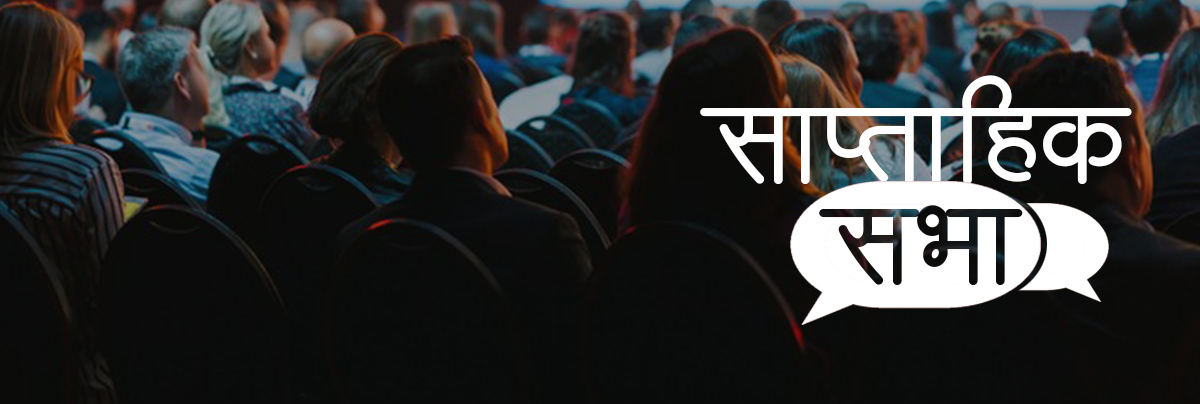
2 January 2023
Session on, "Wonderful world of Ants" by Nutan Karnik
9 January 2023
Session on, " Swarchitra- Moments & Memories of Indian classical music festivals by veteran Photographer Satish Pakanikar.
15 January 2023
Dhundhurmas celebration
19 January 2023
Gappangan- Interview of Ann Nandini Joag by Ann Priyadarshini Ambike
This bulletin is sponsored by PP Rtn. Sudhir Waghmare

